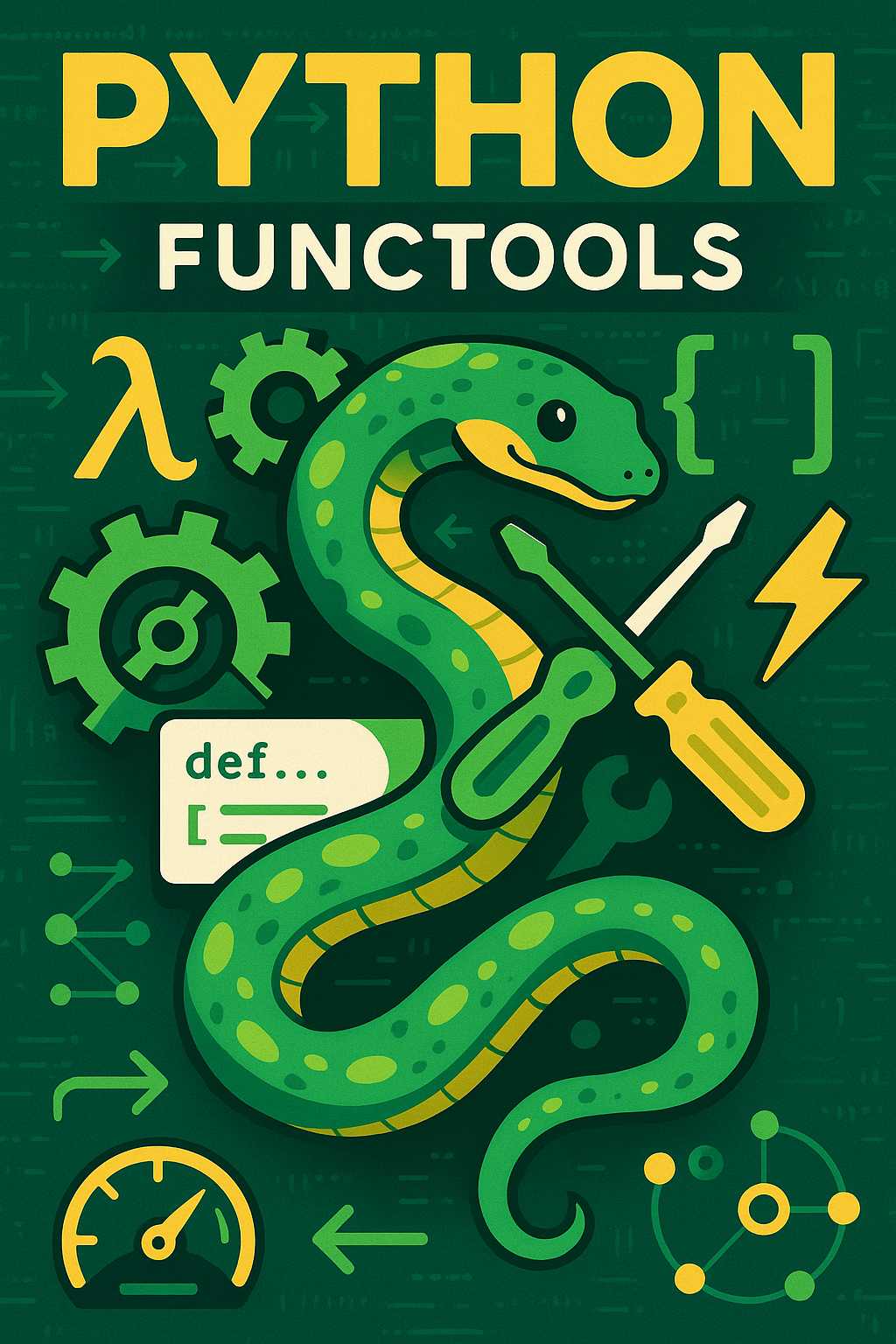As Python developers, we often find solace in discovering built-in modules that streamline our code and make it more efficient. One such treasure trove is Python’s functools module—a humble standard library offering packed with powerful tools to supercharge your functions. Whether you’re writing decorators, caching results, or managing partial function application, functools has something for you. Let’s dive into some of its most valuable features and see how you can leverage them in your projects.
Why functools?
At its core, functools is all about higher-order functions: functions that act on or return other functions. With the functions it provides, you can modify, optimize, and enhance the way your own functions work, all with minimal extra code.
1. Caching with lru_cache
Have you ever found yourself recalculating the same expensive function calls? Enter lru_cache. This decorator caches a function’s results, storing them so that future calls with the same arguments return instantly.
from functools import lru_cache
@lru_cache(maxsize=128)
def fib(n):
if n < 2:
return n
return fib(n-1) + fib(n-2)
print(fib(35)) # Much faster than naive recursion!
lru_cache helps boost performance, especially when implementing recursive algorithms or expensive computations.
2. Pre-filling Arguments with partial
Repeating similar function calls with only slight differences? partial lets you "freeze" some arguments, creating a new function with default values already applied.
from functools import partial
def power(base, exponent):
return base ** exponent
square = partial(power, exponent=2)
cube = partial(power, exponent=3)
print(square(5)) # 25
print(cube(2)) # 8
partial helps you write cleaner, DRY (Don’t Repeat Yourself) code—especially when working with callbacks or higher-order functions.
3. Creating Consistent Decorators with wraps
When creating your own decorators, wraps is your best friend. It preserves a function’s metadata (like its name and docstring), ensuring your decorated functions retain their identity.
from functools import wraps
def logger(func):
@wraps(func)
def wrapper(*args, **kwargs):
print(f"Calling {func.__name__}")
return func(*args, **kwargs)
return wrapper
@logger
def greet(name):
"""Greets a user by name."""
print(f"Hello, {name}!")
print(greet.__name__) # Output: 'greet'
print(greet.__doc__) # Output: 'Greets a user by name.'
4. Useful Function Modifiers
cmp_to_key: Adapts old-style comparison functions for use in sorting.reduce: Applies a rolling computation to sequential pairs of values (imported fromfunctoolsin Python 3).
from functools import reduce
numbers = [1, 2, 3, 4]
product = reduce(lambda x, y: x * y, numbers)
print(product) # 24
Wrapping Up
Python’s functools is an often underappreciated toolkit with the power to make your code cleaner, faster, and more expressive. Next time you’re writing decorators, optimizing recursive functions, or want to DRY up your argument lists, reach for functools!
Happy coding!
— Pythia


Leave a Reply